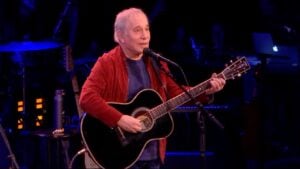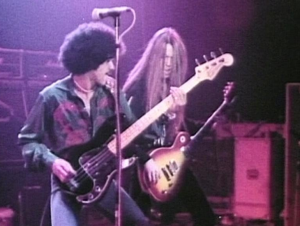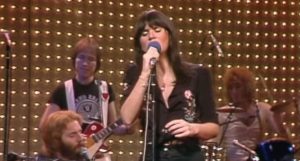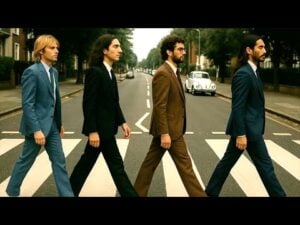10 Classic Rock Songs That Changed The Course Of Time In The 1970s
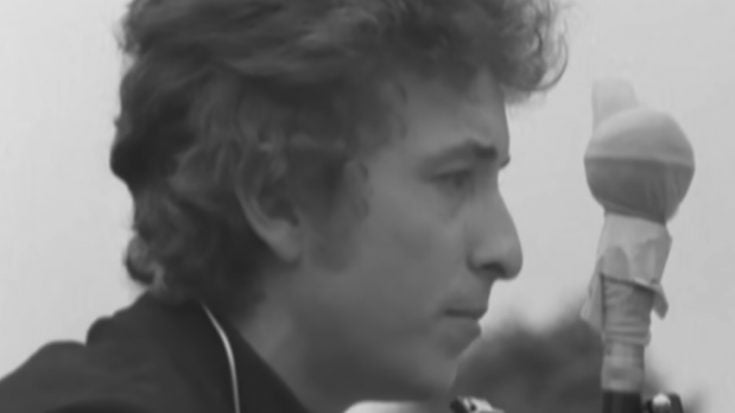
Bob Dylan live in 1964 - Bob Dylan / Youtube
The 1960s wasn’t just about the British Invasion. While bands like the Beatles and the Rolling Stones were dominating the airwaves, a wave of incredible American rock acts were making their own mark.
These weren’t mere imitators – they were innovators, pushing the boundaries of the genre and creating music that continues to resonate today. From surf rock anthems to psychedelic masterpieces, American rock bands of the 60s left an undeniable mark on music history.
In this article, we’ll dig into just a select few of these legendary groups. We’ll explore their unique styles, the cultural impact they had, and of course, the timeless music they produced. So, crank up the volume and get ready for a journey through some of the greatest American rock bands of the 1960s!
1. “Blowin’ in the Wind” – Bob Dylan (1962)
Bob Dylan’s “Blowin’ in the Wind” may have arrived in 1962, but its message resonated powerfully throughout the 1970s.
The song’s simple melody and thought-provoking lyrics, posing a series of unanswered questions about war, peace, and freedom, perfectly captured the frustrations and yearnings of a generation seeking change. “Blowin’ in the Wind” became a surprise anthem for the civil rights and anti-war movements of the following decade.
2. “War” – Edwin Starr (1970)
Edwin Starr’s “War” wasn’t just a song, it was a rallying cry. Released in 1970, its opening line, “War! What is it good for? Absolutely nothing!” became an unforgettable mantra for the anti-war movement.
Starr’s soulful vocals poured raw emotion into the lyrics, urging listeners to question the purpose and devastation of military conflicts. “War” resonated deeply with those yearning for peace during the tumultuous Vietnam War era.
3. “Ohio” – Crosby, Stills, Nash & Young (1970)
Crosby, Stills, Nash & Young’s “Ohio” wasn’t born out of creative planning, but raw urgency. Written by Neil Young in direct response to the Kent State shootings of 1970, the song became a powerful outcry against the violence.
“Ohio” condemned the use of deadly force against unarmed student protestors, capturing the grief and anger felt by many across the nation. It served as a call for accountability and a stark reminder of the human cost of social unrest.
4. “Imagine” – John Lennon (1971)
John Lennon’s best and most memorable solo work, “Imagine”, transcended the boundaries of a traditional protest song. Though not explicitly railing against a specific injustice, it became a powerful anthem for peace and unity.
The song’s evocative lyrics paint a picture of a world without war, possessions, or hunger, a world united by brotherhood. In a decade marked by conflict and division, “Imagine” offered a hopeful message, a vision of a better future that resonated deeply with listeners yearning for a more peaceful world.
5. “The Revolution Will Not Be Televised” – Gil Scott-Heron (1971)
Gil Scott-Heron’s spoken-word masterpiece, “The Revolution Will Not Be Televised”, wasn’t a song for passive listening in 1971. It was a forceful jab to the status quo. Scott-Heron’s lyrics skewered mass media and consumerism, highlighting their role in distraction.
The song challenged listeners to see beyond the curated images on TV and actively participate in the fight for change. “The Revolution Will Not Be Televised” became a rallying cry, urging people to step away from the comfort of their living rooms and become agents of social change.
6. “What’s Going On” – Marvin Gaye (1971)
The 1970s were a period of social unrest, and the music reflected that. In 1971, a powerful song emerged that addressed the harsh realities of the time. “What’s Going On” wasn’t a feel-good tune; it was a soulful lament that tackled issues of racism, poverty, and war.
With its soaring melodies and lyrics brimming with raw emotion, the song became a powerful anthem for social justice. It demanded answers, urging listeners to confront the problems plaguing society and embrace compassion and understanding. “What’s Going On” served as a reminder of our shared humanity, a plea for a world where love conquers all.
7. “Give Peace a Chance” – John Lennon (1969)
Released in 1969, a song emerged that perfectly captured the growing anti-war sentiment of the era. “Give Peace a Chance” wasn’t a complex ballad filled with intricate lyrics. Instead, its power came from its simplicity.
The song’s repetitive, almost chant-like chorus urging listeners to “give peace a chance” resonated with a global audience yearning for an end to the conflicts plaguing the world. It became an anthem, a rallying cry for peace that transcended language and culture, uniting people across the globe in their desire for a more harmonious world.
8. “Big Yellow Taxi” – Joni Mitchell (1970)
A catchy melody with a sting in its tail, 1970’s “Big Yellow Taxi” offered a poignant critique of environmental degradation and unchecked urbanization. Joni Mitchell’s lyrics painted a vivid picture of paradise lost, with the now-iconic line “They paved paradise and put up a parking lot” serving as a stark reminder of the consequences of unchecked development.
Despite its serious message, the song’s accessibility made it a popular hit, raising awareness about the importance of protecting the planet for a wider audience.
9. “For What It’s Worth” – Buffalo Springfield (1966)
Though released in 1966, Buffalo Springfield’s “For What It’s Worth” transcended its time, remaining a powerful anthem throughout the tumultuous 1970s. The song’s lyrics captured the frustration and disillusionment of a generation grappling with social and political issues.
With lines like “There’s a man with a gun over there killing me/ Telling me I got to beware,” it painted a picture of unrest and challenged authority. “For What It’s Worth” became a rallying cry, urging listeners to question the status quo and fight for their rights.
10. “We Shall Overcome” – Various Artists (Traditional)
While its exact origins are debated, “We Shall Overcome” emerged as a powerful anthem during the fight for civil rights in the 1960s and 70s. Rooted in gospel tradition, the song’s simple yet powerful lyrics resonated with millions.
Lines like “We shall overcome someday” became a rallying cry for those facing oppression. “We Shall Overcome” transcended its time, becoming a timeless message of hope and perseverance. It continues to inspire activists today, serving as a potent reminder of the power of unity and solidarity in the face of injustice.















